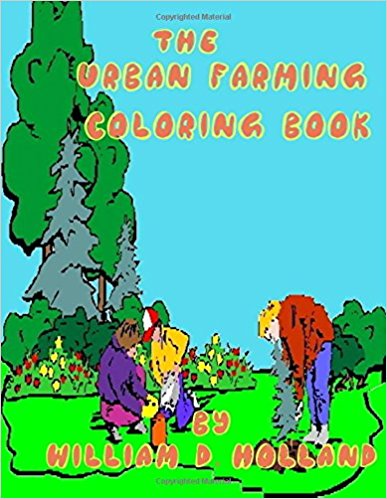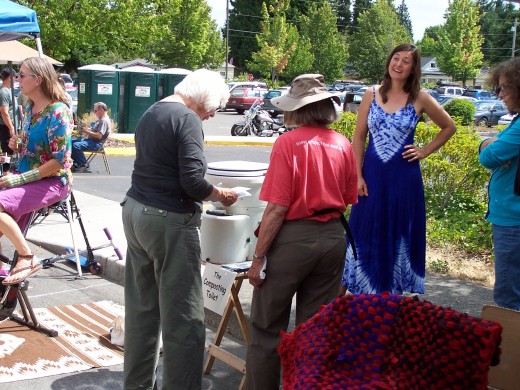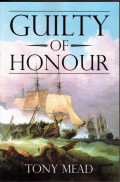The Writer's Mailbag: Installment #165
I Am Blown Away by . . .
The fact that each week there seems to be a new question or two, ones which have never been asked before . . . I find that remarkable after three years of the Mailbag.
Our record-breaking summer weather continues, on the heels of a record-breaking winter, and where it stops, nobody knows.
You know what’s odd? I don’t remember the last time we had a major earthquake here in Western Washington. That’s kind of like “our thing,” and yet I don’t remember one in the last ten years.
Strange!
But what isn’t strange is the Mailbag this week, so let’s get to it!

How Not to Offend
From Ann: “Now there's a question! How do you remain effective on sensitive points without offending? No matter how hard one tries it's still possible to offend someone because some just want an excuse to be offended! What do you think?”
Ann, in today’s time, I don’t think it’s possible to write effectively about controversial issues without offending someone. I don’t see how you can do it. There are too many whackos out there . . . there are too many people with strong beliefs unwilling to listen to the other side . . . there are too many radicals unwilling and/or incapable of compromise . . . so you might as well just go ahead and write and not worry about it.
At one time on HP, all I wrote about were social issues. I did it for at least two years, one political/social commentary article after another . . . but the social landscape I’m looking at today is scary and frustrating to the max, and rather than expose myself to all manner of verbal and written abuse, I just choose to not do it any longer. It’s not worth my loss of serenity, at least not to me. Instead, I cleverly insert my opinions on social issues into my novels and let my protagonist spout off on sensitive issues. That way his butt is chewed out and not mine. LOL
Book Releases and Client Writing
From Eric: “Bill I think this time, late summer is always interesting around here. You can hear the echoes in the empty hallways. So speaking of such, like the release of movies do book releases have best times of year? And likewise, does your freelance client writing slow down?”
Two questions for the price of one, Eric. Thank you!
It was interesting doing research on the best times to release a book. I went to several reputable sites to find the answer, and then checked in with a book agent I know, and the consensus answer is that it depends on the genre of the book. Here is what they seem to agree on, based on genre:
- January – April: Romance, Self-help, Business books, Cookery
- May – August: Adventure, Fantasy, Travel
- Sept – Nov: Academic, Horror, Paranormal, Mystery
- Dec – Jan: Children, Cookery, Illustrated, Quiz, Dictionaries and quirky fun books.
As for freelance customers, it is an up-and-down business just like any other. Mine is a bit more recession-proof because my main customers are real estate companies, one in Los Angeles and one in Fort Worth, Texas, and they are always promoting homes for sale or commercial property for sale, so my business stays pretty constant year-round.
About the only fluctuation I see in my business is when I lose a customer or gain one.

COLLABORATION
From Mary: “I'd like to ask another question, if I may. Although you may not be able to answer it, maybe your readers will. It is about collaboration between an artist and author. Can this arrangement work on a 50-50 basis or in your opinion would it be better just to pay the artist and be done with it?”
This is such a cool and unique question, Mary. Thank you! I learned something while researching this question.
If you are going to self-publish on CreateSpace, the book must be listed under one author and one author only, so a collaboration based on the name of the work cannot happen on that platform.
Obviously it can happen if you find a publishing house, or if you use one of the other self-publishing alternatives, but . . . and this is a big but . . . make sure you both agree to a detailed contract regarding royalties.
Now, my opinion: I would just pay the artist a certain amount per picture/drawing and take total credit for the book myself, with probably a mention on the cover that illustrations are by so-and-so. The reason I say that is I don’t like sharing a creative work, and I don’t want to get involved in contracts and the sharing of royalties. Way too complicated for this boy to deal with . . . pay them per picture and be done with it. Of course, paying for the pictures requires some sort of contract saying that the artist is signing over the rights to the artwork, but that’s a minor hoop to jump through.
Dialogue and Time Flow
From Zulma: “Now, what about times when a character has a lot that needs to be said. Perhaps in the case of a confession or an emotionally-charged moment? Would your advice still apply?
“On a different note, how do you make time flow? How do you let your readers know that a certain amount of time has passed? Do you tell them outright or do you leave clues? I have problems with this.”
Yes, Zulma, my advice would still apply regarding long, emotionally-charged moments or confessions. Listen, I’m no fan of long-windedness. I get real bored real fast, and I believe most readers do as well. I have no problem with long reflective passages as long as they are divided by fluff…..”. . . he moved to the other side of the room, looked out the window, and continued his plea” . . . or “ . . . he contemplated his previous words, looked for a weakness in his arguments, and turned to Sheila to see her reaction before continuing” . . . or “ . . . the shadows slowly moved across the floor, the wind bending the branches outside the window, swirling his words and scattering them across the courtyard, and he wondered if anyone was even listening to him as he continued . . . “
That sort of thing!
As for your second question yes, I basically tell them outright. It doesn’t have to be much of a statement . . . “by the time the interview was over the sun was setting, so they decided on dinner before proceeding” . . . or I will simply mention the time as a day unfolds. I write mostly mysteries, and I want time to move rapidly in my novels, so I have no problem with stating the exact time of day when my main character does something. He’s a private investigator of sorts, and chronicling time is something a P.I. would do anyway, so I don’t think it’s much of a stretch for me to keep the reader informed about the passage of time.
For those who prefer not to be so obvious you can of course leave clues. “The leaves had changed to reds and yellows by the time Robert returned to Margaret.”

More on Dialogue
From Venkatachari M: “One more interesting mailbag with good questions and worthy answers. I have never tried this dialogue-style of writing. I would like to do it. Can you give some tips on how to bring the characters into dialogues? How to create scenes for dialogue in any story telling form? You may do it in the next mailbag.”
How to bring them into dialogue? Do you mean how do I introduce the dialogue, rather than always saying “he said” or “Shannon spoke quickly?”
If that is, indeed, what you mean, then I try to allow the reader into the scene and let them see the action. “Mary walked across the room, stood in front of Andrew, and noticed the worry lines on his forehead. She touched his arm. “Why are you so concerned?”
What I have done there is orchestrate a scene, just like I’m a director of a movie. I allowed the reader to see Mary walk across that room, and by doing that it is obvious who is speaking once the dialogue begins.
Dialogue is crucial to any book or story, in most cases. I believe it to be one of the main elements of a good story, but it must be used selectively and in balance. Too much dialogue will kill the action of a story, and not enough dialogue will leave the reader confused and missing the human connection.
Try this writing site
- Artistry With Words | Helping writers to spread their wings and fly
Helping writers to spread their wings and fly
Writing Tip Sites
From Shannon: “Where are your favorite places to go for writing exercises? I don't mean prompts necessarily, but more along the lines of sites that offer mini lessons and advice. Tricks for character development or plot development, etc.”
Shannon, I subscribe to the “less is better” school of thought. I don’t like to overload my brain with a flood of information, so I made the decision early on to limit the amount of writing lessons and advice that I read. I religiously read the magazine “Writers Digest.” It is my only go-to source for tips and advice. I’m not saying it is the best; I’m just saying it is the one site I enjoy the most.
OUR CUPS OVERFLOW
Big Mailbag this week with new questions . . . it was a blast!
Let’s do it again next week, shall we? As long as I’m kickin’ then the Mailbag will keep arriving at your home every Monday.
And keep your eyes peeled for the release of my new book “Shadows Fall On Rosarito,” due to be published by October 1st.
2017 William D. Holland (aka billybuc)
“Helping writers to spread their wings and fly.”








